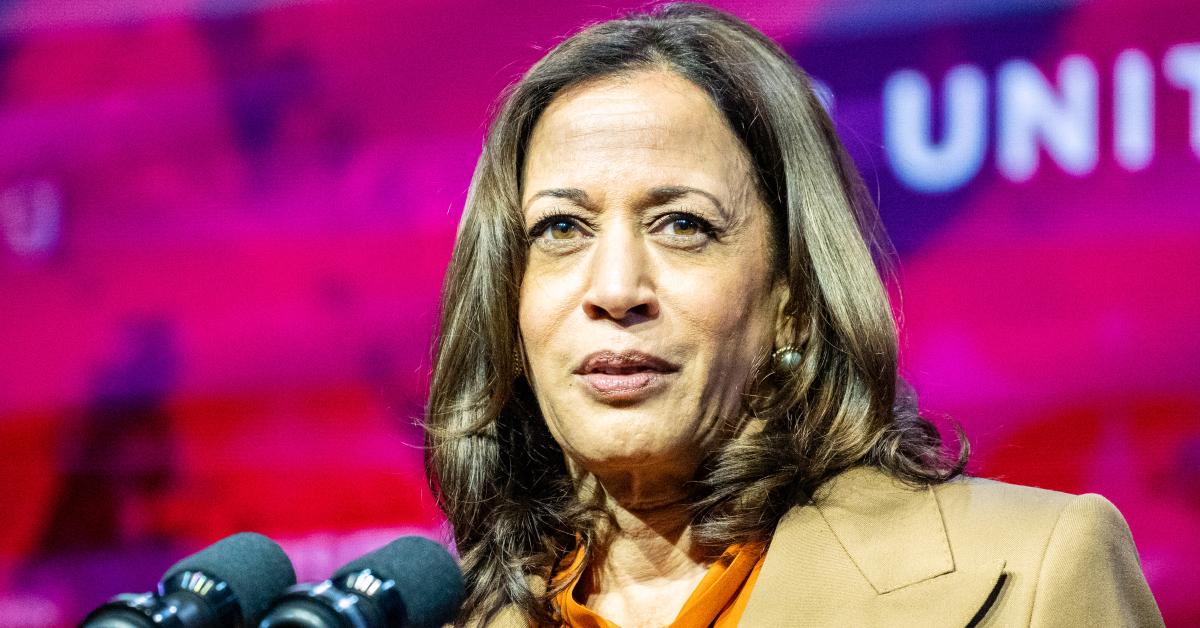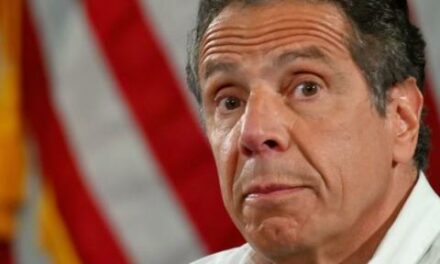We support our Publishers and Content Creators. You can view this story on their website by CLICKING HERE.

Democrats were confronted earlier this year with a terrifying reality: a cap on out-of-pocket costs for patients to limit Medicare drug spending passed as part of Biden’s signature Inflation Reduction Act was set to spike premiums for millions of senior citizens just weeks before the 2024 presidential election.
To avoid the political catastrophe of presiding over major premium increases in the middle of a closely contested election, the Biden-Harris administration used its authority to reroute appropriated funding to subsidize the premiums for seniors until after the election.
The administration’s $5 billion budget gimmick kicked the proverbial can down the road, but only adds to the estimated possible $20 billion in additional spending over three years to cover up the unintended consequences of one of the Biden-Harris administration’s signature las.
While they free Democratic nominee Kamala Harris to tout the caps in her key economic plan for the middle class, the subsidies will cost taxpayers and seniors in the long run.
“They created a new program that’s going to send billions to health insurance companies… to temporarily offset the premium increases,” Rebecca Weber, the CEO of the Association for Mature American Citizens (AMAC) told the John Solomon Reports podcast.
“One could really say that they’re buying, you know, off big insurance companies right before an election. And taxpayers, this is important, that people understanding it, taxpayers are footing the bill today, seniors will pay the price tomorrow,” she added.
Medicare Part D premiums were slated to increase in October at the beginning of open enrollment following pressure on insurance companies generated by the Inflation Reduction Act’s caps on drug prices—one of the Biden-Harris Administration’s signature legislative initiatives.
This could have spelled political disaster for Democrats and their nominee, who bragged that she cast the tie-breaking vote on the legislation.
But the administration swooped in to prevent the catastrophe. The Centers for Medicare and Medicaid Services announced in July a new program to stabilize the premiums, called a demonstration. This program would shell out a total of approximately $5 billion in subsidies for insurance companies to cover the costs of capping prices and other effects of the Inflation Reduction Act.
Before the subsidies, the price cap plan was already set to balloon federal spending after the Congressional Budget Office found the Inflation Reduction Act’s financial impacts were underestimated.
The analysis, requested by Republican critics of the administration’s plans, said the changes made to Medicare by the act would likely cause the new average plan bid for standard Part D coverage to increase by a whopping 179% for 2025 without intervention.
“CBO expects that the additional plan costs reflected in those bids will result in an increase in federal spending of $10 billion to $20 billion in calendar year 2025, compared with our earlier projections,” the CBO said.
The CBO Report:
But, the new subsidy would work to counteract premium increases at the expense of further raising the costs of the Inflation Reduction Act changes.
The motives of the Biden-Harris administration seemed clear when their plan was announced this summer.
“Biden admin to spend billions to blunt spike in Medicare drug premiums,” one Politico headline read. “The move to protect some older Americans from higher costs would come just ahead of the election.”
The move sparked criticism from Republicans. “One of @POTUS’ signature domestic achievements is set to cause a significant spike in Medicare premiums for millions of Americans just ahead of the Nov. election,” GOP Senator Bill Cassidy, R-La., posted to X. “Now, his admin is preparing to dole out billions of dollars to private insurance companies…”
But the Harris has faced little scrutiny for the move and continues to campaign delivering the tie-breaking vote that passed the Inflation Reduction Act and the price caps it contained. With the premium crisis averted, the subsidy plan freed Kamala Harris’ campaign to tout her administration’s efforts to lower prescription drug costs and preserve Medicare.
“Vice President Harris, along with President Biden, took on Big Pharma and won,” the Harris campaign’s “A New Way Forward for the Middle Class” reads. “They lowered out-of-pocket drug costs for millions of seniors by passing the Inflation Reduction Act, which allowed Medicare to negotiate drug prices with big pharmaceutical companies for the first time ever and placed a $2,000 cap on all out-of-pocket drug expenses.”
Harris’ plan conveniently ignores the ballooning deficits associated with the Inflation Reduction Act’s changes to Medicare—a cost that will be borne by future taxpayers—and papers over the administration’s subsidy gimmick to stave off price increases in the short term.
All the while, Harris has promised to “protect Social Security and Medicare against relentless attacks from Donald Trump and his extreme allies” and “will strengthen these programs for the long haul.”
But, experts say seniors have been the real losers of the Biden-Harris administration’s tampering with Medicare and unchecked federal spending.
“Seniors have been the biggest losers of all from Biden’s inflationary policies, because they’ve lost money,” economist and former Trump advisor Stephen Moore told the John Solomon Reports podcast.
“Who is the biggest victim of inflation? Well, it’s always people living on a fixed income with lifetime savings, and all of a sudden, those lifetime savings are worth 20% less than they were, you know, when Biden came into office, their 401 K plans have been hit, and bonds have not done very well either.” Moore said.
“And then you add to that…they’ve been robbing money from Medicare, which is only going to accelerate the date when at which you know that Medicare runs out of money,” he added.

 Conservative
Conservative  Search
Search Trending
Trending Current News
Current News 





